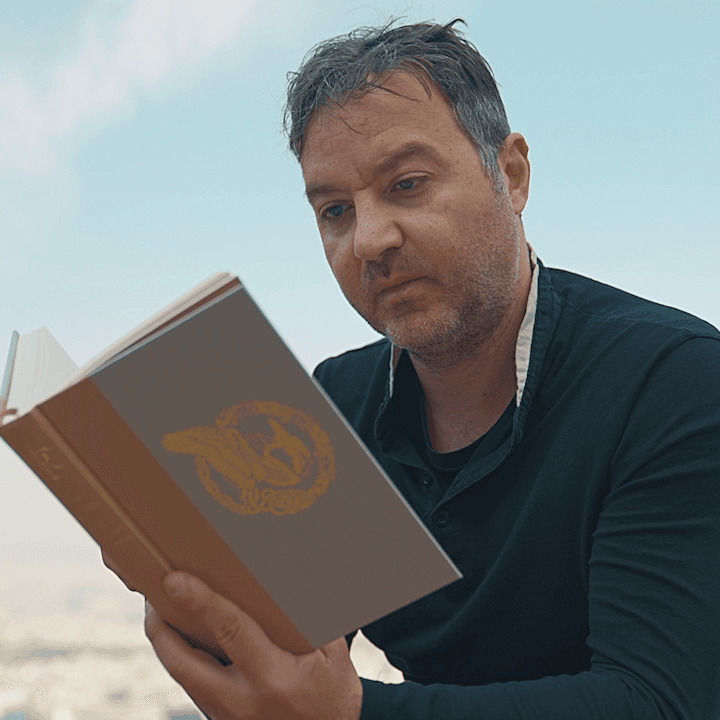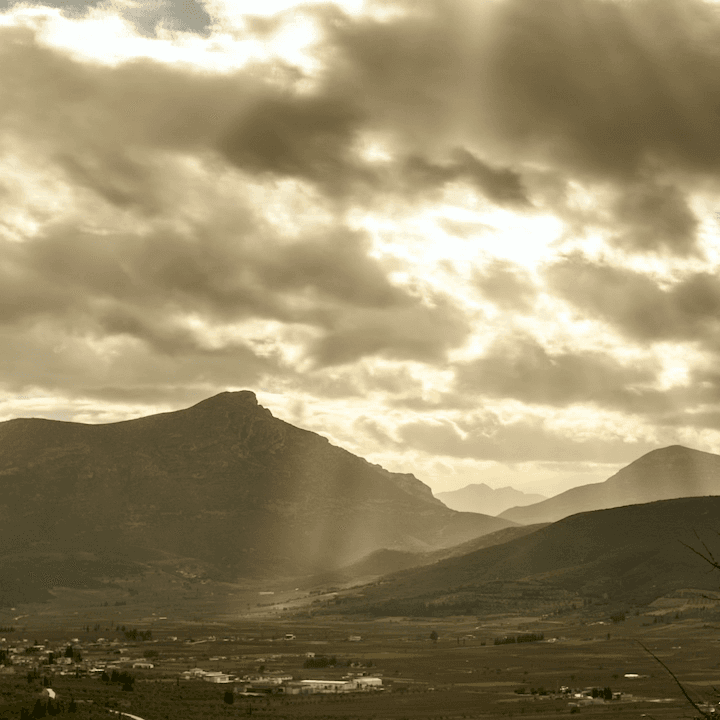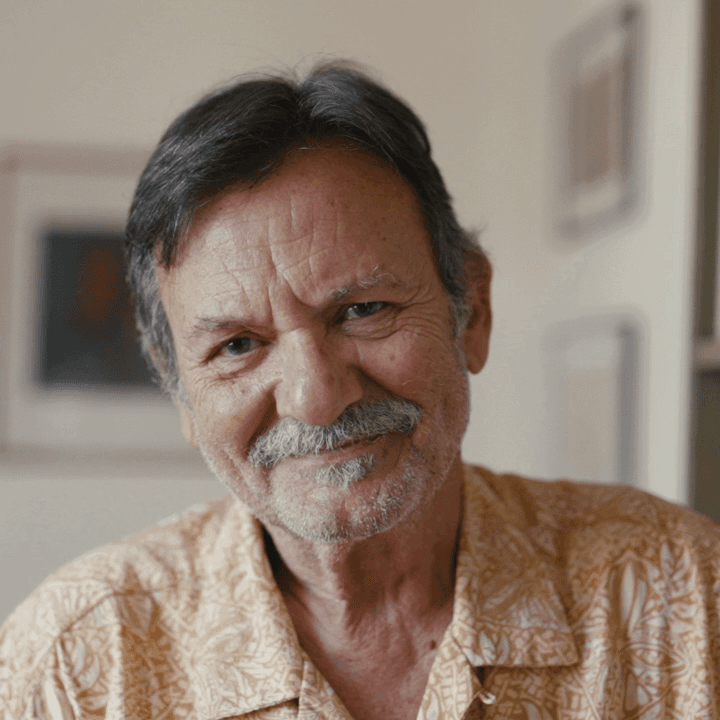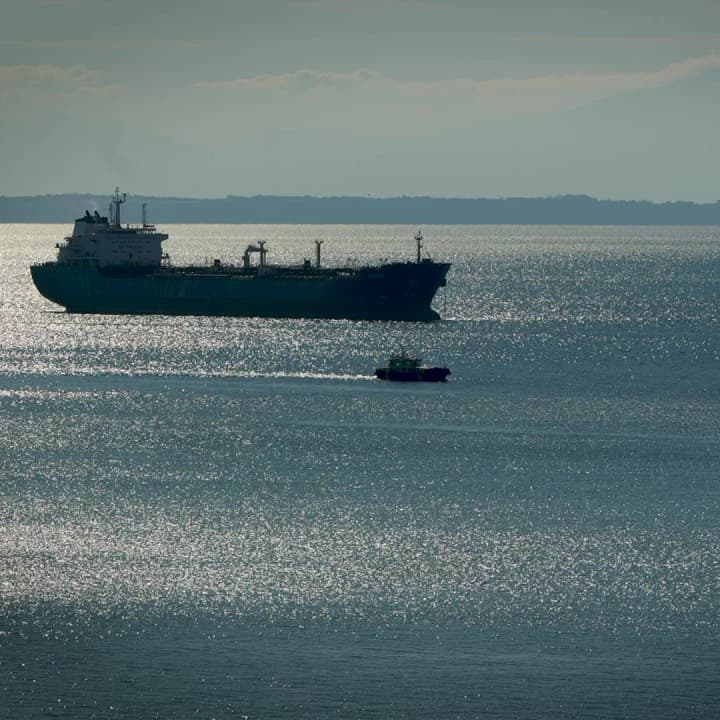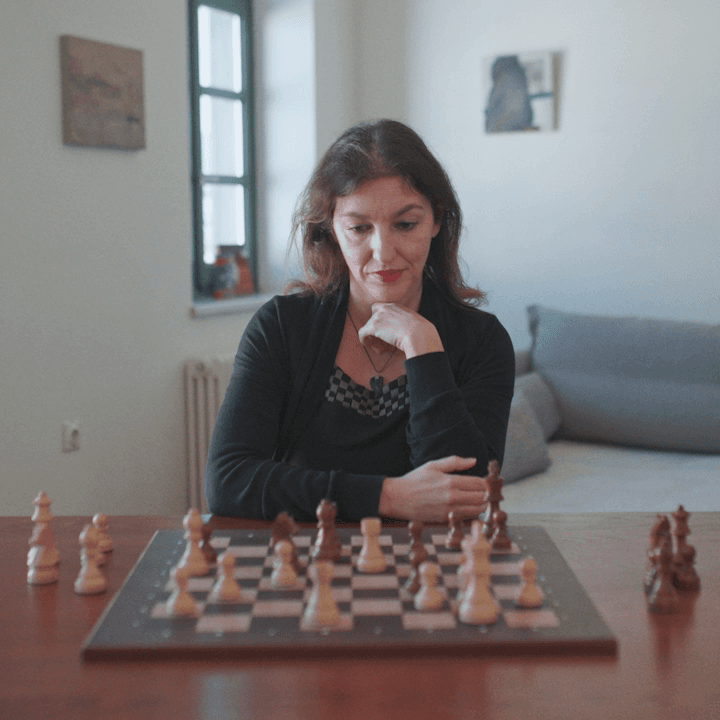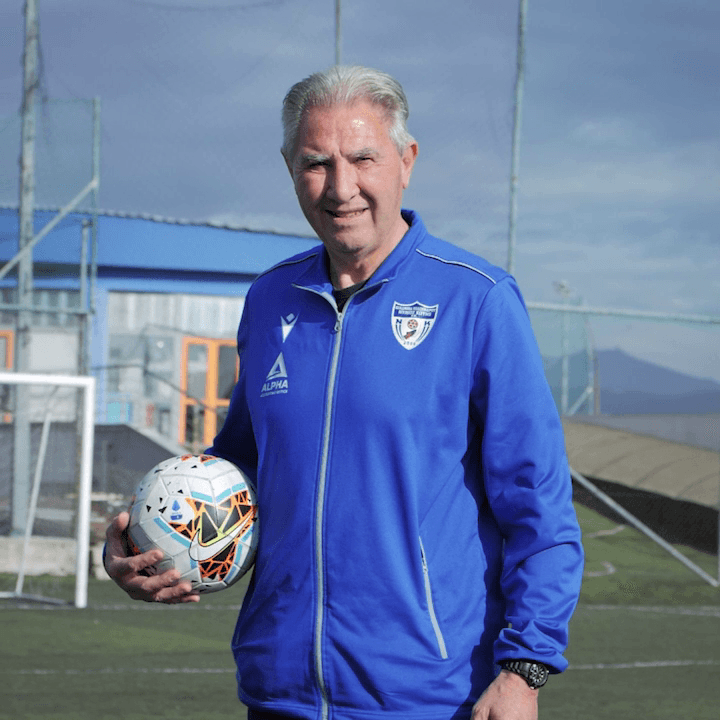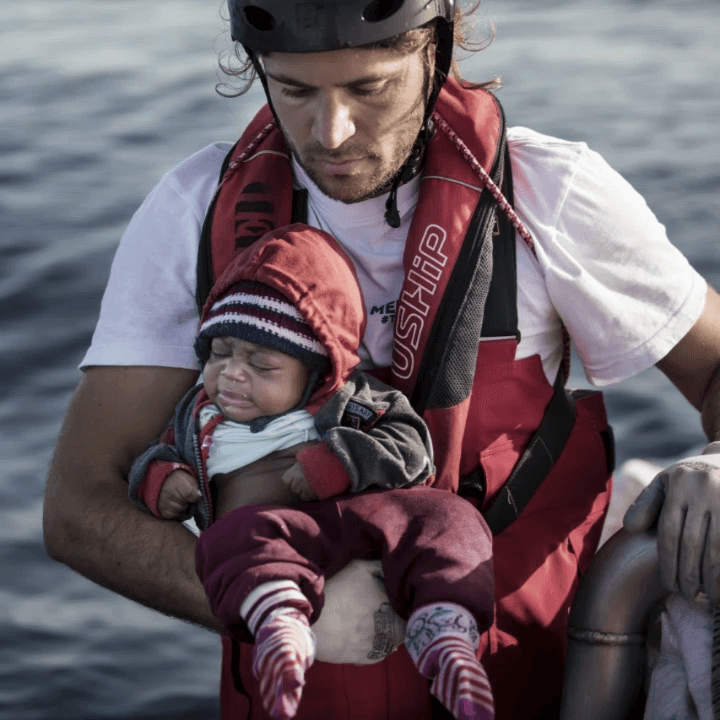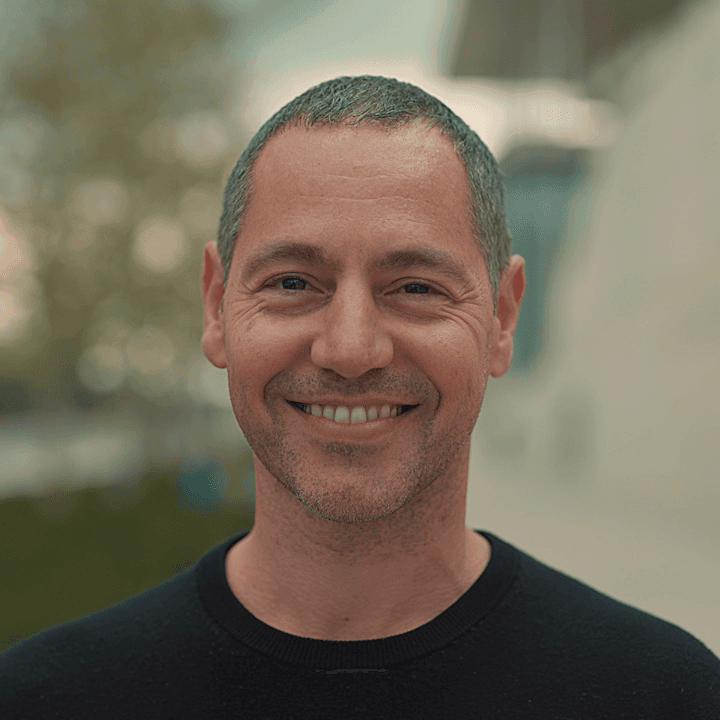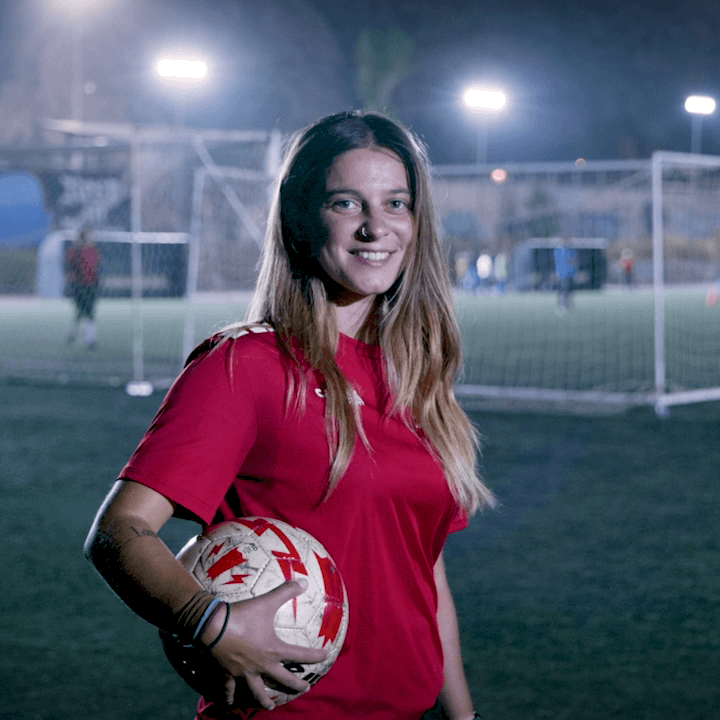My name is Udaya Majji or Udaya Shree Majhi. I am of Indian heritage, but for the past 30 years I've been living in the United States and now I'm a United States citizen. My father was in the army. I'm an army brat, so I grew up all over India. I was born in Agra. I was in a few other places before we came back to our hometown.
I loved my school. I fell in love with English language at a very young age. That was it. I was set for life. Literature was going to be my love for the rest of my life and poetry was going to be my love. So, one was literature and then the second one was history. So even though eventually I ended up going into fintech and STEM programs, but history and literature were the ones that truly called my soul or spoke to my soul. And history, I was fascinated by history, I was fascinated by people who came before us and what they did and why they did it. I've always wondered why they did it. And I've found history and literature have a really good correlation because history tells you who they were, when they were here, and what they did, but poetry tells you why they did it.
I think that was the time when I first started reading about Byron, Lord Byron. And also as part of history, we were doing ancient European history. And you can't not read about Greek history in ancient European history. So, in Greek history, they talked about Alexander's conquest of the world and how he came all the way to India and defeated King Porus or Purush.
And Alexander in Indian language was called Sikandar or Iskandar. There is a very famous phrase in India, you know, “Mukaddar ka Sikandar”. So, Alexander carved his own destiny. So “Mukaddar” is destiny and “Sikandar”, well, is Alexander. So it's like, if you have to tell somebody that, you know, a person that's doing well or is being brave and doing whatever they want to do in their lives, we tell them, it's like, you know, oh, “Mukaddar ka Sikandar”. That is, he is the Alexander of his own destiny. And that is the phrase that is very famous.
And there is actually a movie also, I think Mukaddar ka Sikandar starring Amitabh Bachchan, which is one of the best actors in India. Still alive, he's in like in his 80s and still acting. And he's like an amazing actor. So, you couldn't get away from a Greek influence in India. So we have also what we call the Yunani medicine and then Yunani chai.
Alexander coming to India is also part of my story. Because that's where I grew up. So it's part of my story. I don't hate it or I don't love it. Even growing up in India, Alexander was still Alexander the Great. As I said, it's like we have a phrase based after him, “Mukaddar ka Sikandar”. He's great. He was young. What he did is not being equaled again in the world since then. And that we are aware of. Even in India, we are aware of. And that is what we are taught. That, you know, he's one of the greatest. He's a conqueror... There's no two ways about it. He's the world's greatest conqueror. He was ambitious. He was smart. He was decent. He was good. And these are all the things that we are taught about.
There were times when I kind of wondered, I'm like, is he for real? Or is it just like a story that they are telling to keep us all enthralled? But the fact that we have a phrase “Mukaddar ka Sikandar” is, tells you everything you need to know about how impressed we are by Alexander.
I've also studied Aesop's Fables, which was fables from Greece. Not studied, like it was just books that I used to love. I loved reading and that was one of the books I read, Aesop's Fables. But what I found interesting was Aesop's Fables is very similar to a similar story in India called the Jataka Tales. And Jataka Tales is part of like the old Indian epics like Mahabharata and Ramayana. And I was surprised. It's like, “Oh, they made the same stories!”. And I've been trying to figure out who came first and were there any copying going on, any plagiarism going on, ancient version of it, you know. Did the stories come from one place to the other? And if they did, which place had the story first? You know. So I haven't been able to figure that out yet.
I've read Odyssey and Iliad around the same time I was learning about Mahabharata and Ramayana, even though Mahabharata and Ramayana is a lived experience right now. We still pray to those gods, the rituals surrounding, and the gods and goddesses and the stories are part of everyday life in India, as opposed to the Iliad and Odyssey, which are now just epic tales and have no bearing on life in Greece. But I've read about both of them at the same time. And if you're reading about them, then you're also learning about the gods and goddesses. And I found a lot of similarities between old Greek gods and old Indian gods. Poseidon is the god of sea or the ocean. And we have Varun, who is the god of sea or the ocean. You know, you have the god of heaven, and you have the god of thunder and you have like all these different gods and goddesses. Goddess of health and wealth and wine and we have similar gods. Goddess of love. We have a similar god in India too.
The similarities were just astounding, especially for a young kid growing up and discovering the world. Like, you know, 13-14 year old is like “Wow, they have it too! Wow! I wonder who came first”, you know. So, it was just very, very interesting. And then as I started to learn more about Byron and other poets, especially Leonard Cohen, especially Byron. Byron is one of my favorite poets today, other than Wordsworth. And I actually have a Byron poem tattooed on me, from his poem “To Thomas Moore”, you know. And you can't love Byron without understanding how much he loved Greece and what he did for Greece. And I had learned that Byron had graffitied his name on the Temple of Poseidon in south of Athens. And growing up in India, I saw this old copy of like, you know, smudged photograph of Byron's name on that temple. And I always wondered, I was like “Oh, I wish someday I could go see it!”. But I never thought when I was 15 and I first found out, 15 or 16, and I first found out about Byron being in Greece and doing it, I never thought I would ever visit Greece. It was just like a completely foreign land, you know. Growing up in South India in a small place, it was just not something... But I would always dream, I was like “Oh, someday, someday I'll go see Byron's graffiti at the Temple of Poseidon”.
And that is what has fueled my desire to travel. It was like “I want to see these places that I had read about”. And books were my best friends growing up in India. It was a very conservative culture. So, if I'm not hanging out with my friends, I'm not really allowed to go out. I'm not allowed to hang out with other people. I wasn't allowed to date. So, what do I do? It's either my cousins or books. It caused a curiosity in me, ignited a curiosity in me to come visit the land, to see the people, to see the people who are today Alexander's descendants, descendants of King Leonidas. You know, descendants of the ancient Athenian democracy. These were the people that had started democracy.
The couple of main things that I wanted to really, really, really see were four things. One, I wanted to be in Thessaly, in Macedonia, to see where Alexander was. This was his land. Two, visit Poseidon's temple to go see Byron's graffiti. And three, go to Mycenae and see the Mycenaean tombs. And then, the fourth one was to go to Marathon. So, these were the four places. Like I promised myself “Any time I go to Greece”, when I was growing up in India, I was like “If I'm ever lucky enough to go, I will definitely go to these four places”.
And the first time I visited Greece, I visited Greece in 2017 when my daughter was doing a study abroad program in Thessaloniki. When she was going, when she told me she applied for the program and she got accepted, I was much more happier than she was. I was thrilled for her, but I was even more thrilled. I was like “Yay, now I'm definitely going to Greece!”. She was studying in Thessaloniki and I was like “Oh, did you know Thessaloniki was named after his sister?”.
That was the first time I came. I came for a two-week vacation. I was traveling alone. I rented a car and then I drove through. My first stop was at Poseidon. I found Byron's graffiti and I just kind of walked around and around and around. Because it is so small and those pillars are so big. You had to find it like from a distance. It's like “Where is it? Where is it?”. And then when I found it, I was just thrilled. I was like “He stood here and he wrote his name”. And I just stood there looking at his scribbles. And I was just very impressed. And then I went from there to Marathon. I wanted to go find the Marathon steel and the place where the battle happened and everything. So, I did that. And then I stopped in Thermopylae, where King Leonidas had his battle. And then from there, I drove all the way to Thessaloniki. Just stopping at places like the Nemean Gorge, at Pella, you know. Wherever I could stop, whatever I could find, I just like just went through. It was like kind of my own pilgrimage, a historical pilgrimage of people that I'd read about, places that I'd read about, stories that I knew about and to just go through those things. And then ended up in Thessaloniki.
And I absolutely fell in love with Greece at the time. And it was kind of interesting because I spent two weeks in Greece at the time and I didn't go to the islands. I didn't do any of the “islandy” stuff. I just did like the mainland, all the historical places. And I told myself, “I'll someday come back to islands and go do the islands”. And everyone was like surprised. It's like “Oh, you're going to Greece and you didn't go to Santorini, you didn't go to Mykonos?” I'm like, “There's a lot more to Greece than Santorini and Mykonos!”. And that was how it was. How I was like, “Yeah, someday I'm going to come back”. And I always thought someday when I was going to come back, I always thought I was going to take a sabbatical, take three months off from work, come here to live, travel, see all the islands, see everything I needed to see.
I kind of made my career and just being like an excellent programmer. Then I moved into client server architecture, right now I'm working for a third party vendor that does a lot of back-end processing for the banks.
I was living in US, working at a job that I've done for the past 25 years. I just saw myself living for the next 25 years in the same apartment with my cats, working the same job, doing the same thing and nothing would change. I would take a couple of vacations a year, hang out with friends, do the same. I would live in the same apartment, do the same normal everyday things. Something about it was very depressing to contemplate. “That is all I have to life?”.
I turned 50 about two years ago and something about milestone birthdays makes you kind of take a look at your life in a way and try to figure out where you want to go next. So, 50 was a milestone birthday for me. It was coming in just on the heels of pandemic where my job had become completely remote. It was also around the same time my daughter was graduating college. I could like finally decide to go away, do something else, live somewhere else and do something.
I still didn't think about Greece until I came across this article about like digital nomads and how different countries were offering digital nomad visas. Even then, it sort of felt far-fetched, but I started to research into it, to see like what exactly is it and what they're asking for and what are the benefits. And Greece stood out.
Greece had one of the easiest and the quickest digital nomad visa. They give you a decision within 10 days. You submit everything at the Greek consulate, wherever you are, all the paperwork. They have like a seven or eight list and they made it very easy and simple. They said this, this, this, this and this. Get it done. These are the formats. These are the templates. Get it done. Submit it. And within 10 days, we'll tell you whether you're getting your visa or not. And they just made it so easy. And when I spoke to my boss about it, it's like, yeah, go ahead, live, live your life. So, I just went in, submitted it. And then 10 days later, they called me in and said “Here's your visa”. And I was done. So, Greece made it very, very easy.
I had of course watched movie, including “My Big fat Greek Wedding” and “Guns of Navarone” and “Zorba the Greek”. So, I watched the normal amount of movies in Greece and based in Greece. I knew what to expect. “Big Fat Greek Wedding” was like a good introduction into the feeling like, you know, Greeks are loud and Greeks are friendly and Greeks will invite. But that was something that I already knew from my two-week trip, where they invited me to their family events and they were loud and they couldn't speak English, but they would talk to you anyway, you know.
A lot of people ask me, it's like “You know nobody in Greece, you have no friends, you have no family. Why Greece? Why are you going to go live there?”. And I was like “No, I want something out of the ordinary and you can't get any more out of the ordinary than what I did for me, from where I'm coming from and my life. And I was like “Yeah, I want to push the boundaries a little bit”. Like every time I was planning this, I kept thinking to myself, it was like, “Muqaddar Ka Sikandar, I am the Alexander of my own destiny. I am going to wherever I want to go!” And it was just a phrase that went on a loop for the six months it took me to do my whole planning and everything and to come here. I kept thinking that.
So, as I like to say, I lived in India for like about 25 years approximately, and I've lived in the US for the next 25 years, and now here I am, and I came to Greece for a year, and now this is my second year. So, I'm renewing my visa for another two years, and who knows if I'll end up spending another 25 years here, or if I'll go back.
The questions that I've asked myself over the past year, year and a half, since I started my digital nomad journey is “What is family? What is a home? How do you call a place your own? How do you belong to a place?”. I have met people whose parents and grandparents and great grandparents have all stayed within the same hundred-mile zone. You know, they go meet families for their events and get-togethers and birthdays and weddings and stuff. They call it home. They know it is home. They call it home. They know that is the place they belong to. I don't have that place. I don't have a place I belong to. I don't have a home. I don't belong in India. I don't belong in US. I don't know if I belong in Greece. I don't know if I'll ever find a place I belong in Greece. But finally, for the first time in my life, I'm okay not belonging. I'm okay being a nomad. I'm okay being the wind that just blows from place to place, because a wind is needed for somebody else's sails, and I'm okay being that.
"Muqaddar Ka Sikandar"! I am the Alexander of my own destiny.


